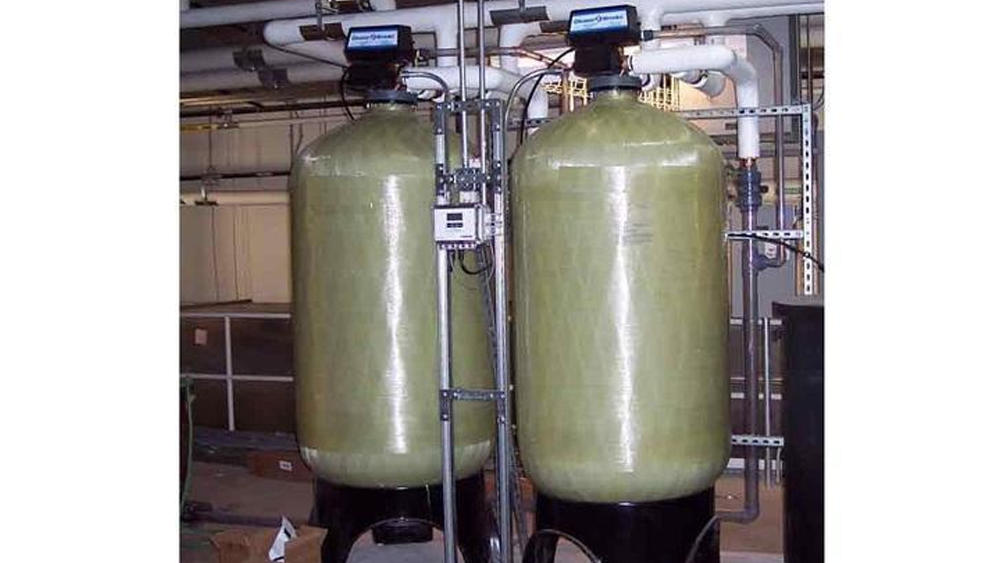From Sludge to Savings: How to Profit from ETP and STP Waste
Waste management has long been viewed as a costly necessity, with industries paying significant sums to dispose of sludge generated...
Read More
Introduction
In the realm of industrial processes, the quality of water used plays a pivotal role in ensuring the efficiency, longevity, and safety of operations. Demineralization (DM) plants are essential for producing high-purity water by removing dissolved mineral salts and ions. This article explores the importance of DM plants in various industries, detailing their working principles and benefits.
Understanding Demineralization Plants
Demineralization, also known as deionization, is a water treatment process that removes mineral salts and ions through ion exchange. DM plants typically consist of two main stages: cation exchange and anion exchange.
1. Cation Exchange: In this stage, water passes through a resin bed that exchanges cations (positively charged ions like calcium, magnesium, sodium, and potassium) with hydrogen ions.
2. Anion Exchange: The water then moves to another resin bed where anions (negatively charged ions like chloride, sulfate, nitrate, and bicarbonate) are exchanged with hydroxide ions.
The result is high-purity water, with the hydrogen and hydroxide ions combining to form water molecules, leaving the treated water free of dissolved salts and minerals.
Importance in Industries
DM plants are crucial in various industries due to the following reasons:
1. High-Purity Water Requirement: Many industrial processes require high-purity water to prevent scaling, corrosion, and fouling of equipment. For instance, in the power generation sector, boilers and turbines need demineralized water to ensure efficient operation and prevent damage caused by impurities.
2. Pharmaceutical and Biotechnology: These industries demand water of the highest purity for manufacturing drugs and other medical products. DM plants provide water that meets stringent standards, ensuring the quality and safety of pharmaceutical products.
3. Electronics and Semiconductor Manufacturing: The production of electronics and semiconductors involves delicate processes that can be severely affected by even trace amounts of minerals. DM plants supply ultrapure water necessary for cleaning and processing components without the risk of contamination.
4. Chemical and Petrochemical Industries: In these sectors, demineralized water is used as a key reactant and in cooling systems. The absence of dissolved minerals prevents unwanted reactions and improves the efficiency and lifespan of equipment.
5. Food and Beverage Industry: High-purity water is essential in the food and beverage industry for processing, ingredient mixing, and cleaning purposes. DM plants help ensure that the water used is free from contaminants, maintaining the quality and taste of the final products.
Advantages of Demineralization Plants
DM plants offer several benefits, making them indispensable in industrial applications:
1. Cost Savings: By preventing scale and corrosion, DM plants reduce maintenance costs and extend the lifespan of industrial equipment. This results in significant cost savings over time.
2. Improved Efficiency: High-purity water enhances the efficiency of industrial processes, leading to better performance and productivity. For example, in power plants, the use of demineralized water increases the efficiency of boilers and turbines.
3. Environmental Compliance: Many industries must adhere to stringent environmental regulations regarding water quality and discharge. DM plants help industries meet these regulations by providing water that meets or exceeds required standards.
4. Consistent Quality: DM plants ensure a consistent supply of high-purity water, which is critical for maintaining the quality and reliability of industrial processes. This consistency is especially important in sectors like pharmaceuticals and electronics, where even minor impurities can lead to significant issues.
5. Scalability: DM plants can be scaled to meet the specific needs of different industries, from small-scale operations to large industrial complexes. This flexibility makes them suitable for a wide range of applications.
Conclusion
Demineralization plants are vital for many industries that require high-purity water for their processes. By removing dissolved salts and minerals, DM plants protect equipment, improve efficiency, and ensure the quality and safety of products. From power generation and pharmaceuticals to electronics and food production, the role of DM plants in industrial applications is indispensable. As industries continue to demand higher standards of water purity, the importance of DM plants will only grow, driving advancements in water treatment technology and contributing to more efficient and sustainable industrial operations.
Jan 25
Waste management has long been viewed as a costly necessity, with industries paying significant sums to dispose of sludge generated...
Read MoreDec 24
Zero Liquid Discharge (ZLD) is a cutting-edge water treatment process that ensures no liquid waste leaves the boundaries of a...
Read MoreNov 24
Introduction to Sequencing Batch Reactors (SBR) Sequencing Batch Reactors (SBR) are an advanced form of activated sludge process used in...
Read MoreNov 24
Understanding the Process A commercial Reverse Osmosis (RO) system is a sophisticated water purification technology that leverages a multi-stage filtration...
Read MoreOct 24
Security for Biomass Ensure optimal biomass growth with our innovative MUTAG BioChip™. This advanced surface design, featuring a high-quality pore...
Read MoreSep 24
Sewage treatment plants play a crucial role in safeguarding public health and protecting the environment. Traditionally, these plants have relied...
Read MoreSep 24
Introduction In today's world, where water scarcity and pollution are growing concerns, the efficient and effective operation of water treatment...
Read MoreSep 24
Sewage treatment plants (STPs) play a critical role in protecting public health and the environment by treating wastewater and preventing...
Read MoreSep 24
In wastewater treatment plants and various industrial processes, sludge is an inevitable byproduct. Managing this sludge efficiently is crucial for...
Read MoreAug 24
Zero Liquid Discharge (ZLD) systems are becoming increasingly vital in industrial wastewater management, driven by stringent environmental regulations and a...
Read MoreAug 24
Paddle dryers are essential in the treatment of effluent treatment plant (ETP) sludge, where moisture reduction is critical for safe...
Read MoreAug 24
Sewage treatment plants (STPs) play a crucial role in ensuring that wastewater, including sewage, is treated effectively before it is...
Read More